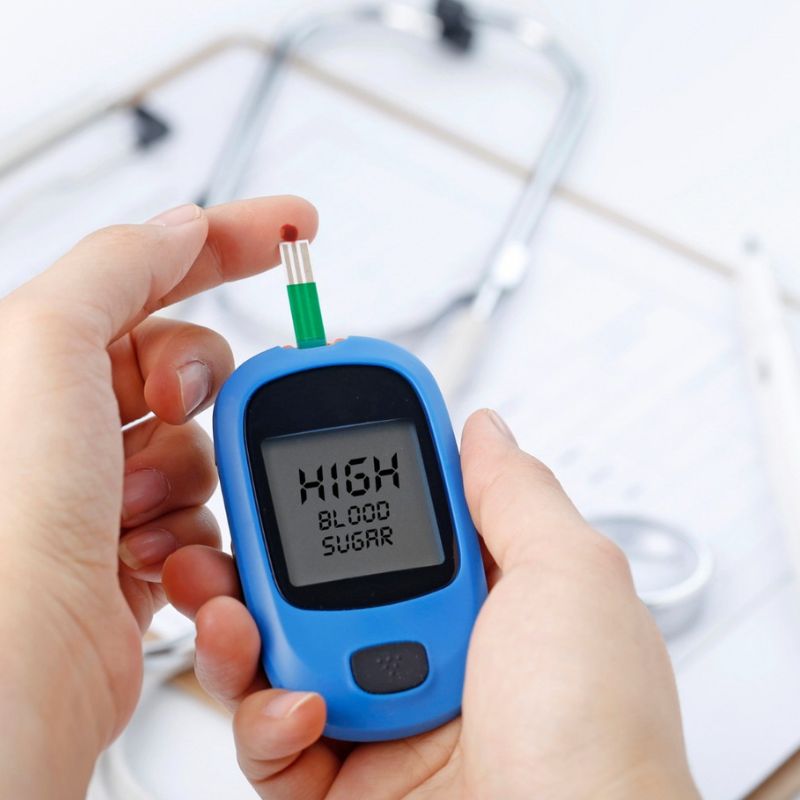Ayurvedic Medicine and Treatment in Indore for Diabetes Diseases
Diabetes is a prevalent health condition that affects millions of individuals worldwide. While modern medicine offers various approaches to managing diabetes, Ayurveda, the ancient Indian holistic healing system, presents an alternative path to address this disease.
In this comprehensive guide, we’ll explore what diabetes is, its causes, and symptoms, and how Ayurvedic treatment offers a holistic approach to managing and even preventing this chronic condition.
What is Diabetes?
Diabetes, also known as diabetes mellitus, is a metabolic disorder that affects how your body regulates blood sugar (glucose). Glucose is a vital source of energy for your cells, and its levels are controlled by the hormone insulin. In diabetes, the body either doesn’t produce enough insulin or can’t effectively use the insulin it produces, leading to elevated blood glucose levels.

There are several types of diabetes, but the two most common are:
- Type 1 Diabetes: In this autoimmune condition, the immune system mistakenly attacks and destroys insulin-producing cells in the pancreas. People with Type 1 diabetes require daily insulin injections to maintain normal blood sugar levels.
- Type 2 Diabetes: This is the most common form of diabetes, typically occurring in adulthood. It’s characterized by insulin resistance, where the body’s cells don’t respond effectively to insulin. Over time, the pancreas can’t keep up with the increased demand for insulin production.
Causes of Diabetes:
The causes of diabetes are multifaceted and can involve a combination of genetic, lifestyle, and environmental factors. Here are key factors contributing to diabetes:
- Genetics: Family history can play a significant role in the development of Type 1 and Type 2 diabetes.
- Obesity: Excess body weight, especially around the abdomen, is a primary risk factor for Type 2 diabetes.
- Poor Diet: Diets high in refined sugars, unhealthy fats, and low in fiber can contribute to the development of Type 2 diabetes.
- Sedentary Lifestyle: Lack of physical activity can lead to weight gain and insulin resistance, increasing the risk of Type 2 diabetes.
- Insulin Resistance: In Type 2 diabetes, cells in the body don’t respond well to insulin, leading to elevated blood sugar levels.
- Autoimmune Factors: In Type 1 diabetes, the immune system mistakenly attacks insulin-producing cells in the pancreas.
- Stress: Chronic stress can contribute to insulin resistance and worsen diabetes symptoms.
Symptoms of Diabetes:
The symptoms of diabetes can vary depending on the type and the stage of the disease. Common symptoms include:
- Frequent Urination: Increased thirst and frequent urination are early signs of diabetes.
- Unexplained Weight Loss: Individuals with Type 1 diabetes may experience sudden, unexplained weight loss.
- Increased Hunger: The body’s inability to use glucose effectively can lead to increased appetite.
- Fatigue: High blood sugar levels can result in tiredness and fatigue.
- Blurred Vision: Elevated blood sugar can affect the eye’s lens, causing vision problems.
- Slow Healing: Wounds and cuts may take longer to heal in individuals with diabetes.
- Tingling or Numbness: Nerve damage, known as diabetic neuropathy, can cause tingling or numbness in the hands and feet.
- Recurrent Infections: Diabetes can weaken the immune system, making individuals more susceptible to infections.
Ayurvedic Treatment in Indore for Diabetes :
Ayurveda offers a holistic and natural approach to managing diabetes. Ayurvedic treatment aims to balance the body, mind, and spirit, addressing the root causes of the condition. Here are key components of Ayurvedic treatment for diabetes:
- Diet and Nutrition: Ayurveda emphasizes a balanced and personalized diet that includes whole, unprocessed foods. Foods like bitter gourd, fenugreek, and Indian gooseberry (Amla) are often recommended for their potential to lower blood sugar.
- Herbal Supplements: Ayurvedic herbs such as Bitter Melon (Karela), Gymnema Sylvestre, and Cinnamon may be used to support blood sugar control.
- Lifestyle Modifications: Ayurvedic practices include regular physical activity, yoga, and meditation to reduce stress and improve overall health.
- Panchakarma Detoxification: Ayurvedic detox procedures, such as Panchakarma, can help remove toxins from the body, improving insulin sensitivity.
- Stress Management: Reducing stress is a fundamental aspect of Ayurvedic diabetes management. Techniques like meditation and Pranayama can help achieve mental and emotional balance.
- Yoga and Exercise: Regular physical activity, including yoga, can improve blood sugar control, enhance metabolism, and promote overall well-being.
- Massage and Oil Therapies: Ayurvedic massages with specific oils can stimulate blood circulation and support nerve health.
- Dinacharya (Daily Routine): Ayurveda promotes the establishment of a daily routine that includes meal timings, exercise, and relaxation to balance the doshas and manage diabetes.
Ready to overcome diabetes naturally and regain your health? Dr. Hakim Sadiq offers the best Ayurvedic treatment for diabetes in Indore. Take the first step towards a diabetes-free life today. Your wellness is our priority, and we’re here to help you thrive. Call now to book an appointment: 7869835152.
